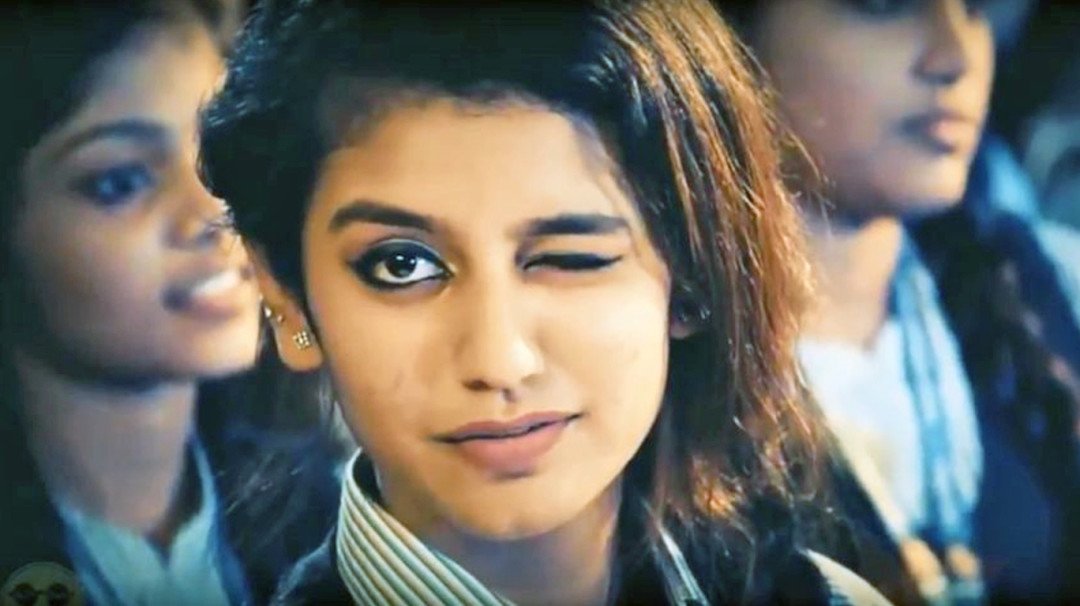SC upholds liberty… nth time
Ravi Shanker Kapoor | September 2, 2018 2:49 pm

A 17-year-old girl winks sensuously in a film song; she is loved by millions on the Internet—and hated by an ultra-sensitive Muslim who files a criminal suit against her and the filmmakers. The Supreme Court had to save her and others from being thrown behind bars. And we are supposed to be the world’s largest democracy!
The Supreme Court recently quashed a police complaint against actor Priya Prakash Varrier and the director and the producer of Malayalam movie Oru Adaar Love in which the wink song appeared. In effect, a bench of Chief Justice Dipak Misra and Justices A.M. Khanwilkar, and D.Y. Chandrachud dismissed the plea that the video had hurt the religious sentiments of the Muslim community.
Speaking to the state counsel, Misra said, “Somebody in a film sings a song and you have no other job but to file a case?” The Chief Justice was right in snubbing the state counsel; but the problem is that, despite the apex court upholding the right to freedom of expression the umpteenth time, the authorities and the police continue to entertain the complaints of tetchy and intolerant people.
The criminal case against Priya Varrier and others was filed by one Mohammad Khan on the grounds that the song hurt the sentiments of the Muslim community. The song had made the now 18-year-old Priya Varrier an Internet sensation. Her wink was universally adored, getting over 77 million views on YouTube.
The song in question is the recreation of a popular Muslim folk song; both the lyricist and the composer of the song are Muslims. But, apparently, the complainant was more Muslim than them; what is certain, however, is that he is sanctimonious; and in an age in which sanctimoniousness commands a premium, such persons can wreak havoc. Evidently, the sanskaris are not just the bane of the Hindu community only: sanskariness is a state of mind or, to be precise, a perversion of mind.
Priya Varrier and others wrote in the petition they filed in the Supreme Court, “What is hard to fathom is that a song which has been in existence for the past 40 years, which was written, sung and cherished by the Muslim community in Kerala is now being treated as an insult to the Prophet and his wife. It is submitted that a song, which has existed for more than 40 years and which has been cherished by more than one crore Muslim population of Kerala, cannot suddenly offend the religious sentiment of the Muslim community.”
At the heart of Priya Varrier’s, and many others’, troubles is Section 295A of the Indian Penal Code. This legal provision criminalize anything that deliberately and maliciously outrages “the religious feelings of any class.” This section, introduced during British rule, violates the letter and spirit of our Constitution, for it mandates only those restrictions that are reasonable. Nowhere in the Constitution is it mentioned that hurting the sentiments or outraging the religious feelings of any class can be a ground for curtailment of the freedom of expression.
The grounds restricting the freedom of expression have to be reasonable and not sentimental, not only because it is the Constitutional position but also because reasons can be objectively debated, while sentiments and feelings can’t be. Merriam Webster describes “sentiment” as “an attitude, thought, or judgment prompted by feeling”, “predilection”, “a specific view or notion”, “opinion”, “an idea colored by emotion”, etc. Similarly, “feeling” is defined as, among other things, “an emotional state or reaction” and “often unreasoned opinion or belief.” It is crystal clear that the defining feature of sentiments and feelings is subjectivity. This is the reason that while many Hindus say that some of M.F. Husain’s paintings hurt their feelings and thus should be banned, many of their co-religionists don’t feel offended by the paintings concerned. There is no objective standard that can lead to the decision that the feelings of the canting can be privileged over those of the tolerant.
It is unfortunate that the highest court of the land has to come to the rescue of those who are tormented by the tetchy.






























